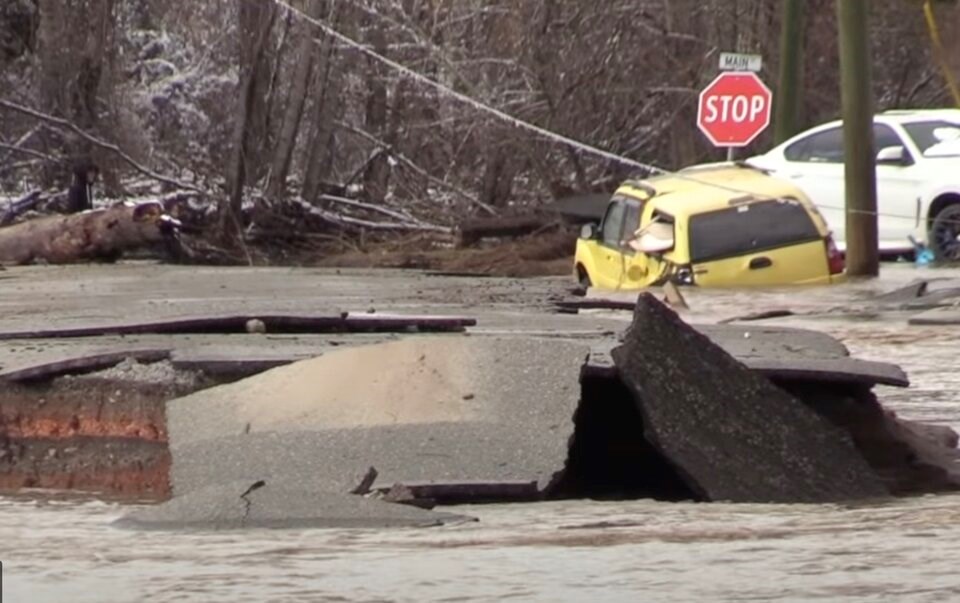Bailee Allen remembers waking up to an alert on her phone. It was the middle of the night and when her phone lit up again, it was her ex-husband calling — the city’s public works yard was going underwater and soon there would be nothing clean to drink.
“He said I needed to start filling buckets,” said Allen.
As the sun came up, the gravity of what had just hit the 7,000-person city of Merritt, B.C., came into focus. Record rainfall over the previous days had swollen water levels in the Coldwater River to 2.5 times anything engineers had ever predicted. When the river burst its banks, the floodwaters knocked out dikes and water monitors meant to warn emergency workers.
Torrents of water swept down the city’s streets, flooding hundreds of households, collapsing bridges, and knocking out the city’s drinking water system and sewer plant. Some residents had their entire home washed away.
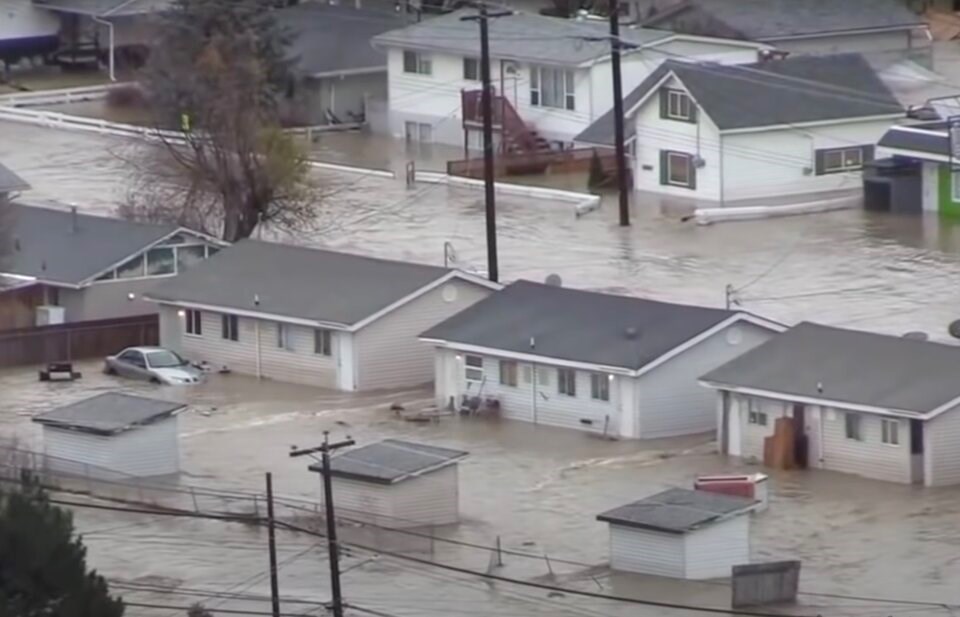
As the community reeled, Allen helped homeless people board buses as they were evacuated to nearby Kamloops. She checked on people’s animals and helped make food for workers. Then she turned to the internet, setting up an online fundraiser through the crowd-sourced charity platform GoFundMe.
Over the coming weeks and months, a total of 366 Merritt homes would be deemed uninhabitable due to the November 2021 floods. Allen's campaign, meanwhile, would raise more than $64,000, and together with the local Rotary Club, further fundraising would push donations past $1 million.
Some residences needed a new furnace or hot water tank. Many required a vacuum truck to come and pump mud out of their homes. Allen said none of the clean up or rebuilding was going to be cheap.
“People have lost their entire houses,” she said. “Now I have all the money, like what am I going to do with it? How do you just pick who gets what?”
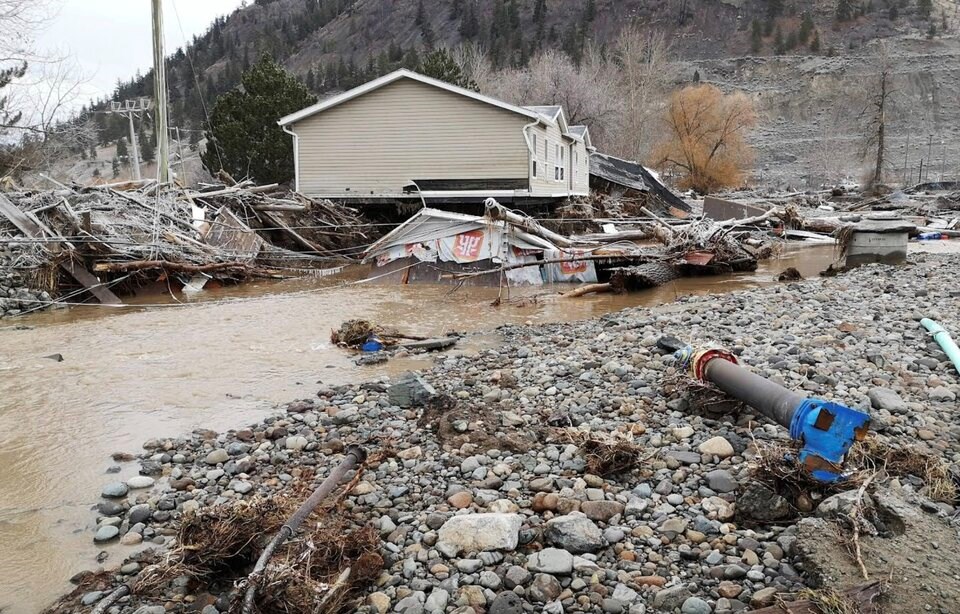
GoFundMe rises as a disaster band-aid
Since its launch in 2010, GoFundMe has raised more than US$30 billion around the world. As its reputation has grown, it has increasingly become a go-to platform to help people in their most desperate moments.
GoFundMe's own data shows disaster campaigns have raised over $24 million in Canada between 2019 and 2023. Over that five-year period, disaster fundraising trended upward, climbing at an average of 34 per cent a year.
Ved Khan, GoFundMe’s senior corporate affairs manager, said the data has prompted the company to increasingly prioritize the support of disaster campaigns in B.C., which like Ontario, has accounted for about a third of all disaster fundraising on the platform, despite the latter having almost triple the population.
“The numbers speak for themselves,” said Khan. “We're definitely seeing an increase.”
When in 2021, wildfires and floods tore through B.C., burning and flooding towns and knocking out billions of dollars worth of bridges and highways, GoFundMe data shows B.C. disaster campaigns raised $4.4 million, outstripping the Canadian annual total for 2019, 2020 and 2022.
But while growing number of individuals open up their wallets, on the ground, Allen said she saw huge gaps in government-backed emergency aid.
“People would call and be in tears because they're like, ‘Whoa, I'm not covered by the government program because I didn't leave during the evacuation,’” said Allen. “And the reason why that person didn't leave during evacuation was because they didn't have any money. They had no money for a hotel.”
In October 2023, a special report from B.C. ombudsperson Jay Chalke looking into the province’s response to the 2021 fires and floods would later find “emergency support programs are outdated, under-resourced, inaccessible and poorly communicated.”
The B.C. government has since started a process to modernize its emergency support programs. But for the time being, sites like GoFundMe appear to be filling the gap, and some early evidence suggests those who are benefiting most from GoFundMe disaster relief need it least.
Colorado’s costliest wildfire reveals GoFundMe’s equity problem
While crowdfunded private charities appear to be filling a void in desperate moments of need, they can also lead to unintended consequences, warned Emily Gallagher, an assistant professor at the University of Colorado at Boulder who researches the impacts of disaster on household incomes.
Gallagher co-authored a study in January 2024 tracking data from GoFundMe crowdfunding campaigns after the 2021 Marshall Fire in Colorado. That fire destroyed more than 1,000 buildings and caused over US$2 billion in damages, making it the state’s most costly fire on record.
At the time, Gallagher said GoFundMe campaigns took off, getting shared by religious and school networks, posted all over the internet, and broadcast in local news. But it wasn't clear who benefited and how. To make sense of that, Gallagher said the team's research assistants manually compiled the names and addresses of about 1,000 GoFundMe beneficiaries from the Marshall wildfire. Next, they pulled individual credit report histories to estimate their annual income.
After running a statistical analysis, the study found beneficiaries with incomes above $150,000 received 28 per cent more support than those with income below $75,000. Those in higher income classes also tended to give to other relatively wealthy people and were more likely to have a campaign in the first place.
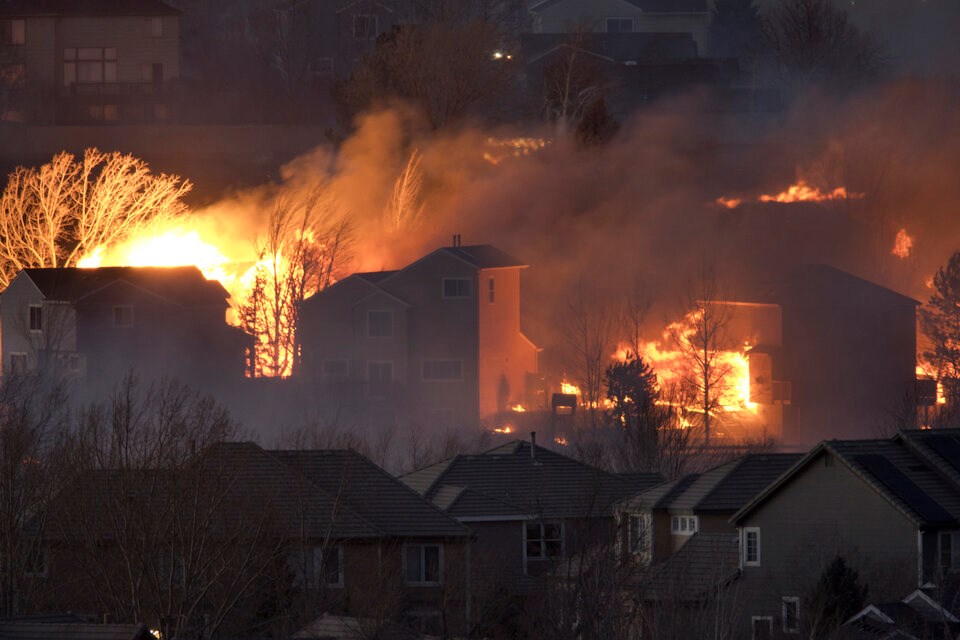
When the researchers expanded their scope across the U.S. — including the 2023 Maui fires — they found that over two years, zip codes with higher median incomes had higher GoFundMe proceeds after an emergency.
“Not only do we find this crowdfunding tilts towards higher income, we also find evidence that it matters,” Gallagher said. “We find that the more you raised in your GoFundMe account, the faster you start to rebuild.”
Put together, the U.S. researchers concluded that crowdfunding through private charity “may exacerbate income inequalities in the recovery process.”
Jeremy Snyder, a professor of health ethics at Simon Fraser University (SFU) currently researching crowdfunding, described the Colorado research as “really good” and representative of a pattern he has seen across a number of GoFundMe campaigns — from people raising money for surgery to homeowners with a serious mould problem.
“If your friends are wealthy, then you can lean on them to contribute to you. If you're well educated, you can create a more compelling crowdfunding campaign,” Snyder said.
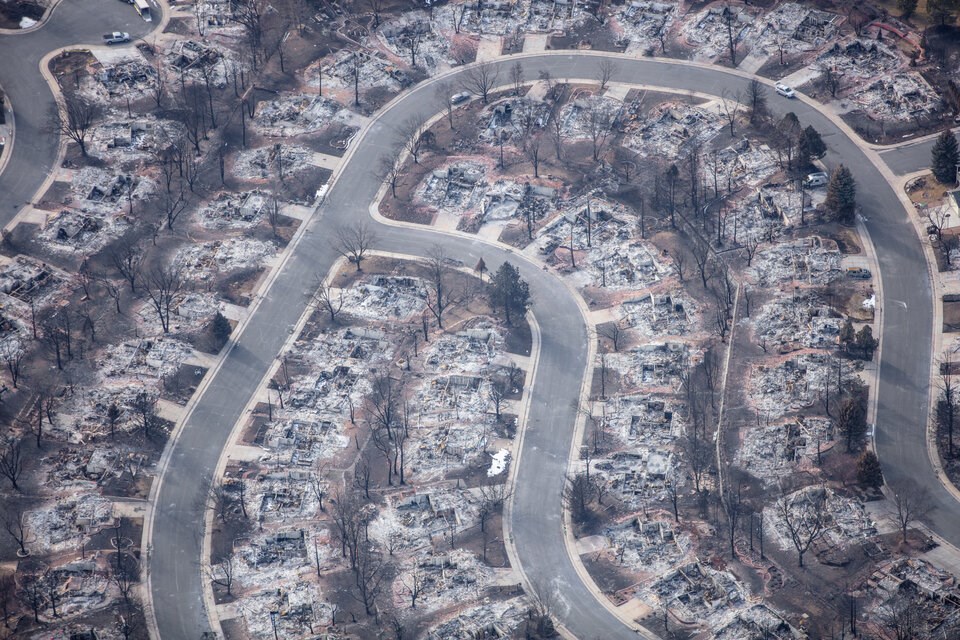
People who are new to Canada, don't speak English as a first language, and are less educated, however, more often struggle to see the benefits of a GoFundMe campaign, said the SFU professor.
To be successful on GoFundMe, often desperate people have to enter a kind of “Hunger Games” mentality where popularity contests are won when the best stories capture the eye of the most generous wealthy donors, Snyder said.
“It just creates an inequity,” he added. “The people most in need are the least likely to get help through crowdfunding.”
Could GoFundMe teach government how to distribute aid better?
There’s no evidence Allen’s fundraising in Merritt went to more wealthy residents. In fact, when Allen went to distribute the money, she partnered with the local Rotary Club and used questionnaires to weed through who had lost the most, and who slipped through the cracks of insurance programs and government support.
By working with an established community group, Allen said she was able to personally distance herself from choosing the roughly 75 households that ultimately benefited from the fundraising.
“I thought about it and thought how do you decide?” she said. “People know me, and trust me… but I could see how it could be a problem.”
GoFundMe has a vetting process to verify the identity and aims of fundraising campaigners, and guide them on how to disperse the money, according to Khan.
But Allen acknowledged that once the money was in her account, there were no limits on how it could be spent and who it would benefit. She said the whole experience should spur the provincial government to be more proactive when it comes to delivering emergency support.
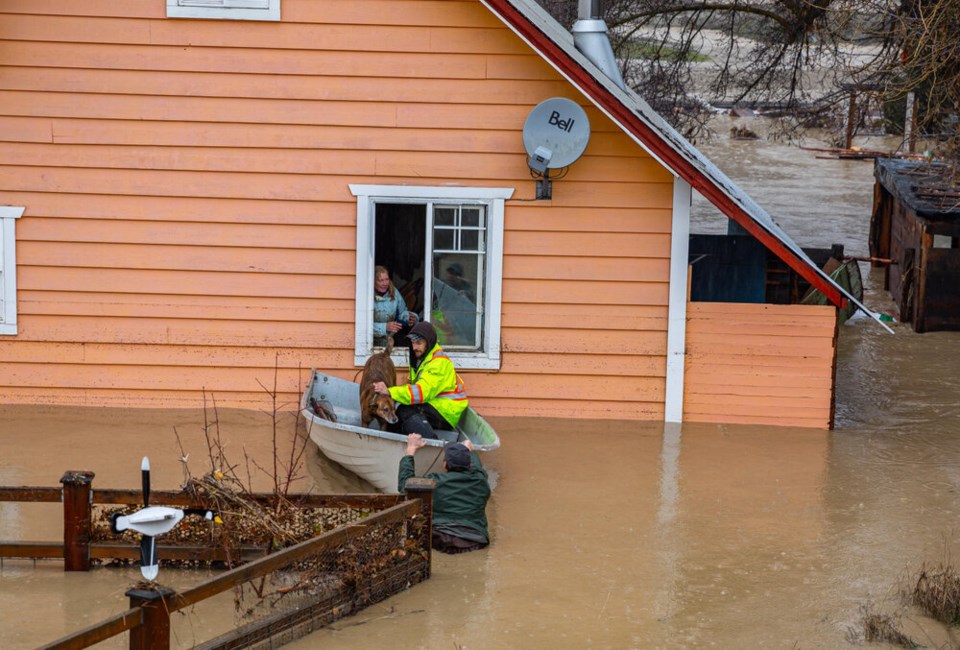
Despite its limitations, all the people interviewed for this story said GoFundMe remains a net positive in disaster situations. As Gallagher put it, even higher income people can be underinsured, lose everything and need money.
“The amounts that people are able to raise [through GoFundMe] is incredible... but it's not a way to fund lower income people,” she said.
Snyder went even further, suggesting governments should be taking notes, and consider using GoFundMe's data and tactics to more quickly stage, target and deliver aid after a disaster.
“This is a failure that people are having to do this crowdfunding. So we need to learn from that because this will continue to happen,” he said.
“There's always another disaster around the corner.”
Correction: A previous version of this story stated Ved Khan's position as CEO of corporate affairs. He is, in fact, GoFundMe's senior corporate affairs manager.
